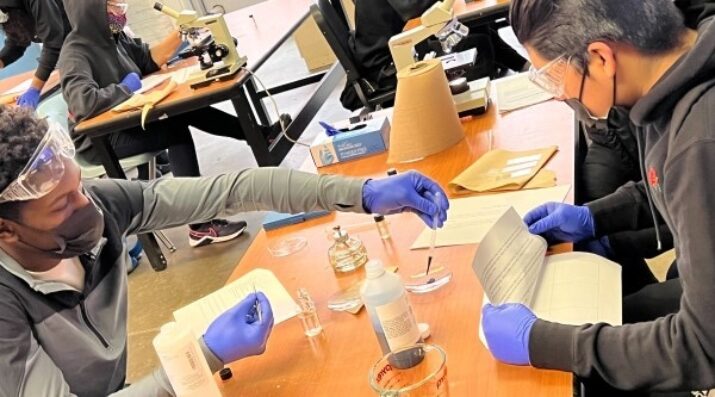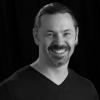Why Schools Need to Change
Knowing What’s True and Knowing What’s You
Topics

Today’s learners face an uncertain present and a rapidly changing future that demand far different skills and knowledge than were needed in the 20th century. We also know so much more about enabling deep, powerful learning than we ever did before. Our collective future depends on how well young people prepare for the challenges and opportunities of 21st-century life.
Teaching critical thinking and decision making involves helping students know what’s true, and it should also include helping them know who they are and what they value.
By design, my Twitter feed is mostly basketball, school reform, and random Philadelphia stuff. I try to keep it light.
But the algorithms are always trying to widen the aperture to my attention, testing what I’ll respond to and foisting content on me accordingly. As a result, I get a decent amount of content about politics pushed into my feed. (To be clear: I’m not looking to avoid information on political issues, I am looking to avoid information about these issues on Twitter. It’s not the medium for nuance.) And while I am reluctant to linger too long for fear of encouraging the algos, it doesn’t take much probing to realize that some significant portion of what I am seeing—let’s call it a third—is either totally fabricated or intentionally misleading.
Disinformation and PsyOps are hardly new, but the cocktail of AI to generate content and social media to spread it is probably the most potent we’ve ever seen. Given the fact that these tools are so easily accessible to anyone, including and especially those acting in bad faith, it’s no surprise that my formerly fun Twitter feed can read like dystopian satire.
All of which inevitably leads me back to the simplest and most basic of questions:
How do we know what is true?
Critical thinking, media literacy, blah blah blah. Yes, all of these. Way smarter people than me have written a ton about that. (My one small addition is the reminder that these need to be modes of inquiry and reflection rather than electives layered on top of school-as-we-have always-known-it. It’s not what we’re teaching and learning, it’s how we’re doing it.)
What’s really interesting to me is the logical extension of that question in the year 2024:
How do we know what is true when we almost always have incomplete and/or bad information?
As educators, our approach to knowing what’s true is usually characterized by a kind of empiricism: if we get good enough at identifying credible sources and checking claims against evidence, we can sleuth out the truth and distill the signal from the noise. That may be true for the simple stuff—I am confident that I can get a third grader to fact check Donald Trump’s claim that he reduced insulin prices—but most of the things we need to understand, from the effects of climate change to how to talk to our relatives, aren’t simple.
I’m currently designing a project for a college class at our postsecondary program, Workshop U, called “How to decide.” It’s rooted in our students’ lives and experiences (they are literally deciding what kind of internship experience they want to design), but really, it’s about 1.) how to make a choice with incomplete information and imperfect options, and 2.) how to commit to, and be at peace with, that decision once you’ve made it. There is a high-level cognitive aspect to this work. An entire field is dedicated to decision making under uncertainty, and understanding or estimating risk is as critical as it is complex. But just as important as our cognitive tools is the ethical or moral foundation on which we build our learning. We know what’s true first by knowing ourselves, what we believe, and what we value. This is reflective, philosophical, even spiritual work. It steadies us amid the inability to fully know and impels us to turn our decisions into commitments.
Our values and beliefs shape what kinds of activity feed us and what drains us. They influence what we pay attention to and what we marginalize. If we think about our movement through life as a vector, our effort is the magnitude but our values and beliefs set the direction.
In schools, our approach to teaching critical thinking, media literacy, and the like sometimes assumes that arriving at a decision is simply a matter of adjudication. On important questions (the war in Gaza, reproductive freedom, economic policy), what is true is seldom that objective. The more information we have, the more nuanced, and often muddled, the picture can become. In these instances, what is true becomes a question of which pieces of the picture matter most to each of us. Failure to realize this leads us to view those who arrive at other conclusions as dishonest or corrupt.
At the Workshop School, the curriculum is designed so that students can “sample” different kinds of subject matter and ways of working. We want them to build knowledge and skills, but the most important subject they are learning is themselves. Through community building rituals like morning circle, reflective practices such as exhibitions, and diverse explorations of how they might change the world, we’re trying to help them build a foundation of self-awareness. A deep understanding of our values and commitments serves as our home base, the place we return to when we encounter new information and experience or when we reach key decision points in our lives.
A grounding in values is also what makes voice and choice meaningful. In both our high school and postsecondary programs we ask students to make big decisions about what they want to work on. The ones who succeed at this are those who have a deep commitment to what they want to do and understand why they want to do it. Those who are loosely attached to their vision are quick to abandon projects when obstacles arise, as they inevitably do. The offer of choice does not automatically make work meaningful.
So yes: let’s teach students a healthy skepticism, an ability to filter, and a capacity to weigh claims against evidence. But let’s also remember that these capabilities are like a spotlight. The deeper work is helping students figure out where to point it.
Photo at top courtesy of Workshop School.




